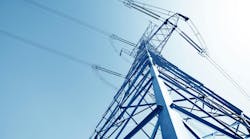More and more communities are calling for underground transmission to decrease the number of outages, especially after severe weather knocks out power for days or weeks. However, a general lack of knowledge of how to design and operate these underground transmission systems pervades in the United States today, according to Dennis Johnson, senior project engineer with POWER Engineers. Johnson is trying to fight the deficiency by training utility engineers on underground cable systems.
Johnson has over 20 years of experience in the design and construction of transmission and distribution systems and is a member of the IEEE Insulated Conductors Committee, which is responsible for developing guides and standards for high-voltage underground systems.
“I understand the types of issues that face the utility engineer when they are considering underground transmission for the first time,” Johnson said. “I have also been involved in the last couple years in the review and rewrite of the EPRI Underground Transmission Systems Reference Book.”
Johnson will be presenting two half-day courses at T&D World University on Oct. 29 and 30 on “Overview of Available Underground Cable systems” and “High-Pressure Fluid-Filled Pipe-Type Cable System Detail Design.” One of the classes is an overview of the types of underground cable systems currently being installed and the other class delves into specific detail design considerations for designing HPFF cable systems, including cable system components, trench design, cathodic protection, manhole layout and design, and overhead to underground transition structure design.
Johnson has given a number of presentations to utilities on underground in general, from available cable systems to design considerations. Every March, POWER Engineers holds a 2-day conference and seminar for overhead and underground transmission line design.
The conference features two tracks: overhead and underground. The overhead line track offers presentations relating to current design standard changes to specific projects and challenges. The underground presentations consist of basic underground design considerations and recent challenges on specific projects.
Johnson has served as a design and project engineer on numerous substation, overhead, and underground transmission projects at voltages ranging from 69 kV to 345 kV. He has been involved in various engineering, procurement, and construct (EPC)-type projects. He has been senior project engineer at POWER Engineers for the past six years after working for 13 years with another T&D consultant as a design and project engineer.
When Johnson originally started college, he said he had no idea what he wanted to do. “All I knew is that I liked math and science,” he said. “After my first year, I decided that I wanted to be some type of engineer and since my father is an electrical engineer, I sort of gravitated to the electrical engineering field.”
He tried computers and electronics but found that he enjoyed power engineering more. When he graduated with his B.S. in electrical engineer with an emphasis in power, he accepted a job as a distribution engineer at Arizona Public Service in Phoenix. He was responsible for designing and maintaining the overhead and underground distribution lines.
“This began my exposure to underground construction,” Johnson said.
He left APS after three years and joined Black & Veatch’s T&D division. “At about this time, underground transmission was starting to become a factor in transmission line design,” he said. In 1990, he became a part of Black & Veatch’s new underground transmission group, and he has been involved in underground transmission ever since.
Johnson is located in the Kansas City, Kansas, area. POWER Engineers, however, has offices all over the United States as well as in the UK and Chile. The company, founded in 1976, is a consulting engineering firm specializing in energy, facilities, and communications.
Johnson said he enjoys being involved with the different types of projects across the country as well as being able to educate people about underground transmission. “Underground cable systems are not uncommon and are a viable alternative to overhead lines,” Johnson said.
The worst thing about his job, he said, is the associated travel with having projects all over the country. He has a lot to come home to, though, with six children who “always have some activity that they need to be taken to.”

